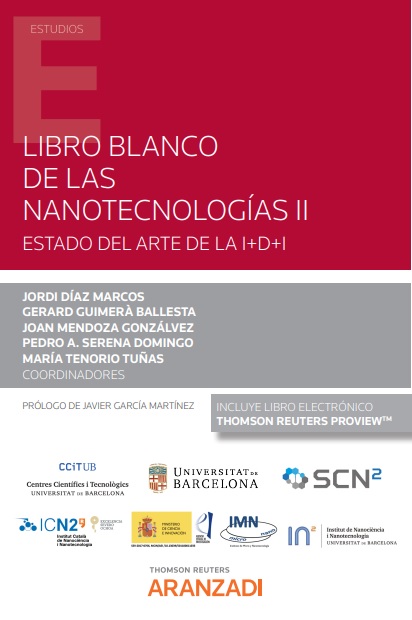Nanotechnologies: the scientific, ethical and societal challenges for the 21st century

Nanotechnology represents a real scientific and conceptual revolution that is changing the way we understand matter. Traditionally, it was thought that the properties of materials remained the same regardless of their size, but today, we know that some important characteristics —colour, resistivity, magnetism and even chemical reactivity— change in the nanoscale field. Scientific advances in nanoscience and nanotechnology —very active and productive areas of research— are increasingly extraordinary and will open the way to future applications, such as biomedicine, materials, food, pharmacology, environment, energy, telecommunications, engineering, etc. that we cannot yet even imagine.

Nanotechnology represents a real scientific and conceptual revolution that is changing the way we understand matter. Traditionally, it was thought that the properties of materials remained the same regardless of their size, but today, we know that some important characteristics —colour, resistivity, magnetism and even chemical reactivity— change in the nanoscale field. Scientific advances in nanoscience and nanotechnology —very active and productive areas of research— are increasingly extraordinary and will open the way to future applications, such as biomedicine, materials, food, pharmacology, environment, energy, telecommunications, engineering, etc. that we cannot yet even imagine.
Addressing the scientific, ethical and social challenges surrounding nanotechnologies is the main objective of this white paper on nanotechnologies. The Libro blanco de las Nanotecnologías II. Estado del arte de la I+D+I (Ed. Aranzadi) will be presented in the Aula Magna Enric Casassas of the Faculty of Chemistry of the University of Barcelona on 15 February at 10:30 am. The new volume is a continuation of the Libro Blanco sobre Nanotecnologías (White Paper on Nanotechnologies) presented at the multisectoral conference Nanoday 2021, and thus forms a unique piece of work that covers all aspects related to nanotechnology.
The volume is coordinated by experts Jordi Díaz-Marcos, Gerard Guimerà, Joan Mendoza, Pedro A. Serena and María Tenorio, and it includes the participation of the Bioethics and Law Observatory (OBD), the Scientific and Technological Centres (CCiTUB) and the Institute of Nanoscience and Nanotechnology (IN2UB) of the UB together with the Catalan Society of Nanoscience and Nanotechnology (SCN²).
The presentation will be chaired by the vice-rector for Entrepreneurship, Innovation and Transfer, Mercè Segarra; the director of the CCiTUB, Juan Fran Sangüesa; the director of IN2UB, Guillem Aromí; and the president of the International Union of Pure and Applied Chemistry (IUPAC), Javier García-Martínez, director of the Laboratory of Molecular Nanotechnology (NANOMOL) of the University of Alicante and author of the book's prologue.
The presentation, which will be led by the editors and coordinators of the book, Joan Mendoza (CCiTUB) and Jordi Díaz-Marcos (CCiTUB and IN2UB), will include a roundtable with the participation of the authors and IN2UB members Francesca Peiró, Giancarlo Franzese, Maria Pilar Vinardell, Albert Romano and Albert Serra.
Disruptive technologies: ethical, social and economic aspects
The book is divided into eight chapters with the participation of nearly forty leading experts in nanotechnologies from universities and research centres throughout the country.
The work is a positioning paper on the disruptive multidisciplinary field of nanotechnologies and its impact on ethical, social, legislative, economic and educational aspects. The new publication aims to represent the educational community, the public administration, the business sector, the scientific community and civil society organisations. Its eight chapters address various topics related to nanotechnology, beyond research and knowledge transfer.
Among other conclusions, the book stresses the need to foster cross-disciplinary collaboration between academic disciplines, research centres and industry in the debate on nanotechnologies. The volume analyses aspects related to occupational safety and health of workers handling nanomaterials, or the toxicity of nanomaterial-based products and their effects on the environment.
The book also focuses on the tools available for responsible research and innovation, as well as legislation, regulations and good practice guides for research and innovation. Other relevant aspects relate to the transfer of basic research results to the market, investment and governance.
According to the authors, thinking about nanoscience from different perspectives "will help to provide concrete visions of what direction nanotechnological development should take in the coming years". With this book, the experts want to create a "space for meeting and debate on the present and future of nanotechnologies, with special attention to ethical and social aspects".
